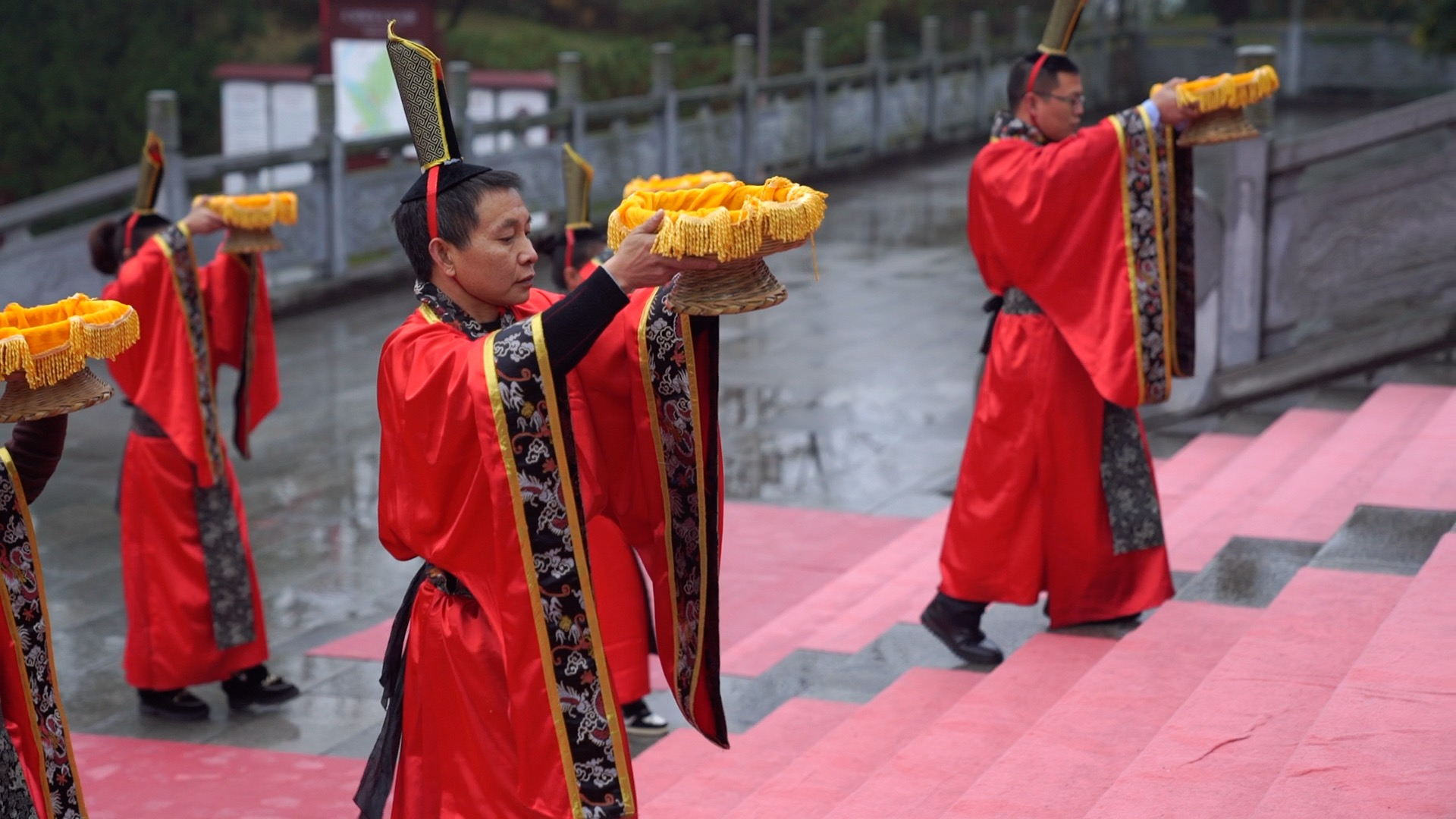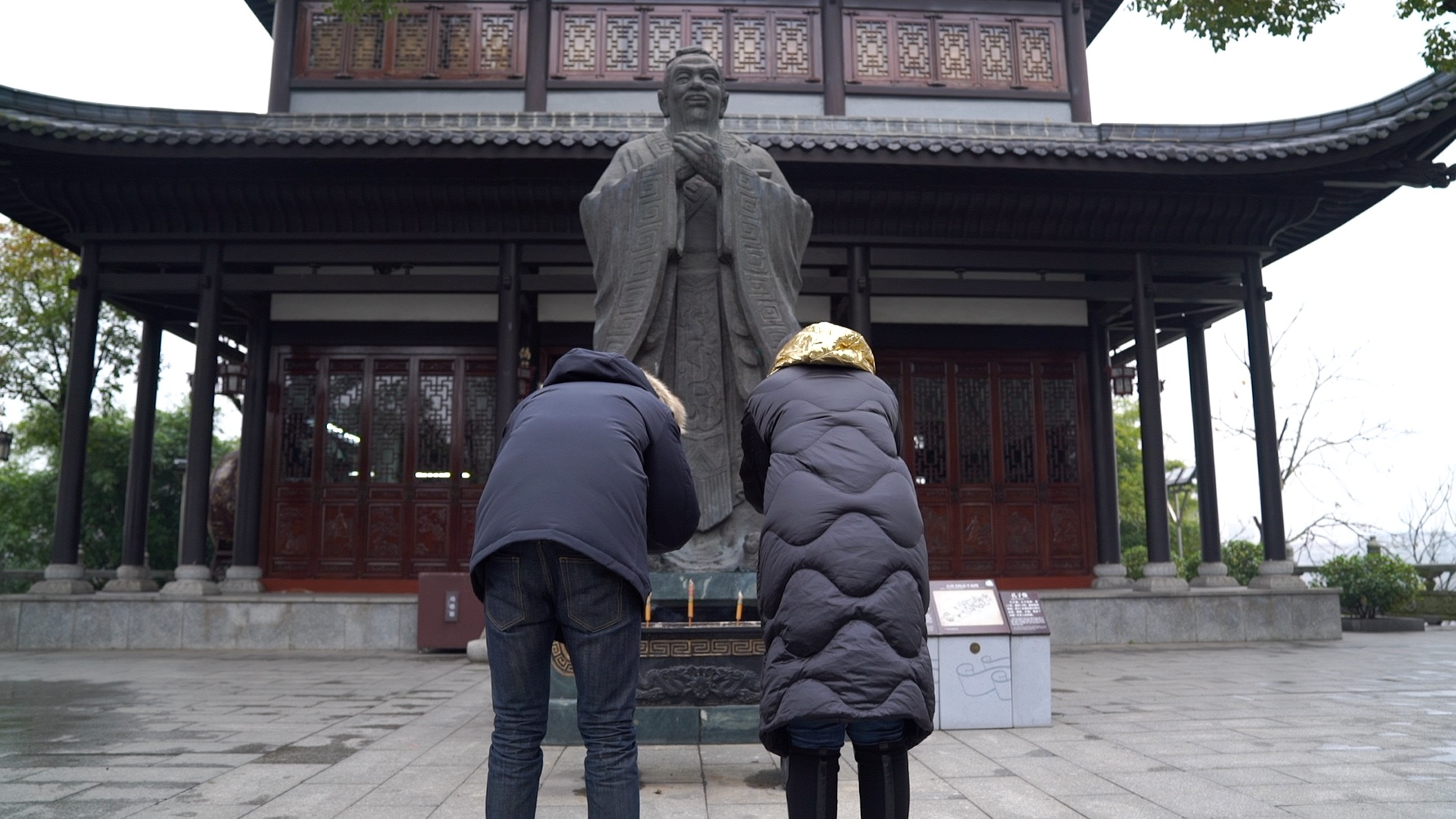
China
12:05, 12-Dec-2018
‘Real Time China’ Day 7: Passing down China’s legacy
Updated
11:31, 15-Dec-2018
By Li Zhao
02:55

He looked solemn in his red outfit as he held a basket filled with grain and fruit – a tribute to the emperor. It was a scene I had often witnessed on a TV screen, but was now coming to life right before my eyes for the very first time.
I was attending a memorial ceremony for Emperor Yan held at his mausoleum in Zhuzhou City, central China's Hunan Province. The man in red, along with a dozen others, was paying homage to the legendary emperor from pre-dynastic China, offering ritual sacrifices to show his greatest respect.

People offer sacrifices to Emperor Yan during a ritual ceremony at Emperor Yan's Mausoleum in central China's Hunan Province. /CGTN Photo
People offer sacrifices to Emperor Yan during a ritual ceremony at Emperor Yan's Mausoleum in central China's Hunan Province. /CGTN Photo
Many Chinese people believe they are the descendants of Emperor Yan and Huang, who fought hard for the good of their people.
I had just joined the "Real Time China" crew as they traveled the country's length by bus. Even though it was my first day on the road, my mission was already mapped out.
I wanted to see how the country had changed in the 40 years since the reform and opening-up policy was rolled out, but it wasn't the big roads, big companies and big technologies that caught my attention. I was more interested in tradition, legacy and values that have been passed down for generations – values like Confucianism.
At Shigu Academy in Hengyang, also in Hunan Province, I was told that in the old days, students were required to bow three times to the Confucius sculpture to show respect to their instructor.

CGTN reporters Li Zhao and Xu Xinchen bow to Confucius, at Shigu Academy. /CGTN Photo
CGTN reporters Li Zhao and Xu Xinchen bow to Confucius, at Shigu Academy. /CGTN Photo
So we bowed, entered the ancient campus and headed to the "champion drum," which is said to bring success to those who strike it.
I thought to myself: "Shouldn't these things be preserved and passed down forever?"
CGTN's special series "Real Time China" commemorates the 40th anniversary of China's reform and opening up. The CGTN crew is crossing some 2,000 kilometers from the capital Beijing all the way to the southern city of Shenzhen by bus from December 5 to December 14, inspecting along the way what has changed and what remains the same after four decades of rapid development.

SITEMAP
Copyright © 2018 CGTN. Beijing ICP prepared NO.16065310-3
Copyright © 2018 CGTN. Beijing ICP prepared NO.16065310-3